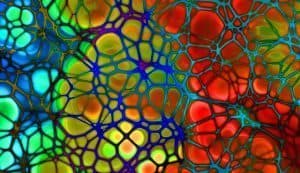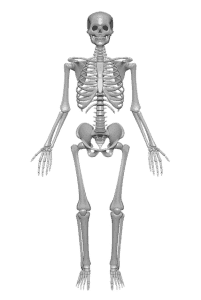What is mineral deficiency?
![]()
 Minerals are nutrients that the body greatly needs for it to function very well. Mineral deficiency happens when a person is not able to take adequate levels of it in a daily basis.
Minerals are nutrients that the body greatly needs for it to function very well. Mineral deficiency happens when a person is not able to take adequate levels of it in a daily basis.
Mineral deficiency means there are low levels of it in person’s system. He or she might not have acquired it through the foods that he or she eats. In addition, for the body to be in an optimal state, it needs the help of minerals and vitamins. Each of them brings their own benefits to the body.
Minerals can help with the different complex processes in the system. It can support major organs in the body. It also has the ability to strengthen various parts that are frequently used every day.
It is important to note that deficiency most often happens over time. It can be caused by certain conditions and illnesses. Also, lack of mineral in meals will have the body get issues in absorbing them. This deficiency can lead to several health problems. These problems might range from weak bones to the weakening of immune system.
The different types of mineral deficiency
Main types of this deficiency include iron, potassium zinc, magnesium and calcium. They are also considered as the most common as well.
Iron deficiency
 More than half of the iron found in the body are in the red blood cells. It is part of hemoglobin. It is a protein that carries oxygen to the different tissues in the body. This certain mineral also plays a role in proteins and enzymes. They help the body stay healthy. Good sources of it are meat, fish, green leafy vegetables and poultry.
More than half of the iron found in the body are in the red blood cells. It is part of hemoglobin. It is a protein that carries oxygen to the different tissues in the body. This certain mineral also plays a role in proteins and enzymes. They help the body stay healthy. Good sources of it are meat, fish, green leafy vegetables and poultry.
Potassium deficiency
This mineral is needed for muscle contraction, transmission of nerve signals and proper heart function. It is also required by enzymes that help the body. They convert carbohydrates gathered from food to usable energy. Great sources of this mineral can come from bananas, orange juice, plums, potatoes and vegetables.
Zinc deficiency
This mineral takes part in many metabolism processes that happens in the body. They also play roles in the immune system function. Wound healing, protein and also for DNA synthesis. It is also an essential mineral when it comes to growth and development. Sources of it can be from nuts, dairy products, whole grains and beans.
Magnesium deficiency
The body uses magnesium. It takes part in various chemical reactions. These include regulating blood glucose levels, blood pressure, and also proper functioning of muscles and nerves. It is also part of the complex process of producing protein. Great sources of this mineral are whole grains, green leafy vegetables, nuts, seeds and legumes.
Calcium deficiency
 This certain mineral is known for its benefits to the bones. It makes them healthy and strong. Also, the same goes for teeth in the body. Calcium also supports functions of blood vessels, hormones, nerves and muscles. Sources of this mineral are milk, cheese, yogurt and some vegetables. This certain deficiency yields symptoms in short term. It does this for it regulates the amount of calcium in the body. Long periods of low level calcium can lead to osteopenia and osteoporosis. Risk of bone fractures is also increased as well.
This certain mineral is known for its benefits to the bones. It makes them healthy and strong. Also, the same goes for teeth in the body. Calcium also supports functions of blood vessels, hormones, nerves and muscles. Sources of this mineral are milk, cheese, yogurt and some vegetables. This certain deficiency yields symptoms in short term. It does this for it regulates the amount of calcium in the body. Long periods of low level calcium can lead to osteopenia and osteoporosis. Risk of bone fractures is also increased as well.
For people not to suffer from those deficiencies, they are careful on what they eat. They have a regular and balanced diet. People also need to acquire essential minerals and vitamins. There are also others who choose to go with nutritional supplements.
Mineral supplement
Optimal-M by Nutrifii supports bones, nerves and muscles of the body. It does  this through a comprehensive spectrum of minerals and pyhytonutrients in it.
this through a comprehensive spectrum of minerals and pyhytonutrients in it.
Minerals are essential for achieving and maintaining optimal nutrient levels and overall health. Even the FDA has also claimed that almost everyone can benefit from taking quality natural health supplements.
To know and read more of the product, click Optimal-M by Nutrifii.
To Maintaining Good Health,

The ARIIX Products Team
www.AriixProducts.com
Please Like & Share…Thanks!

